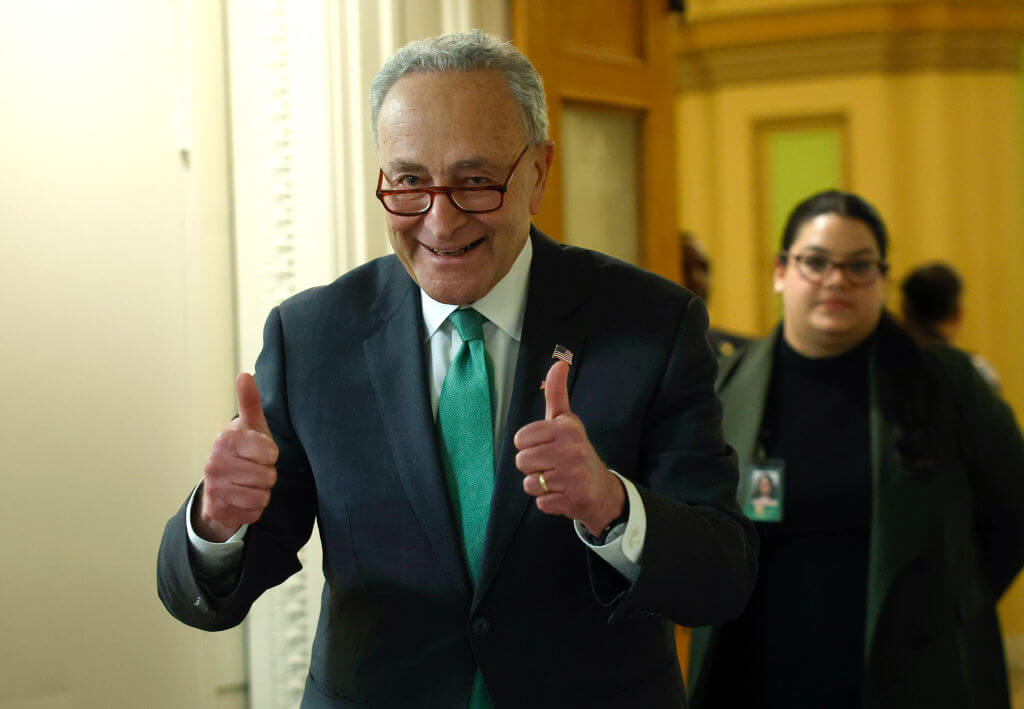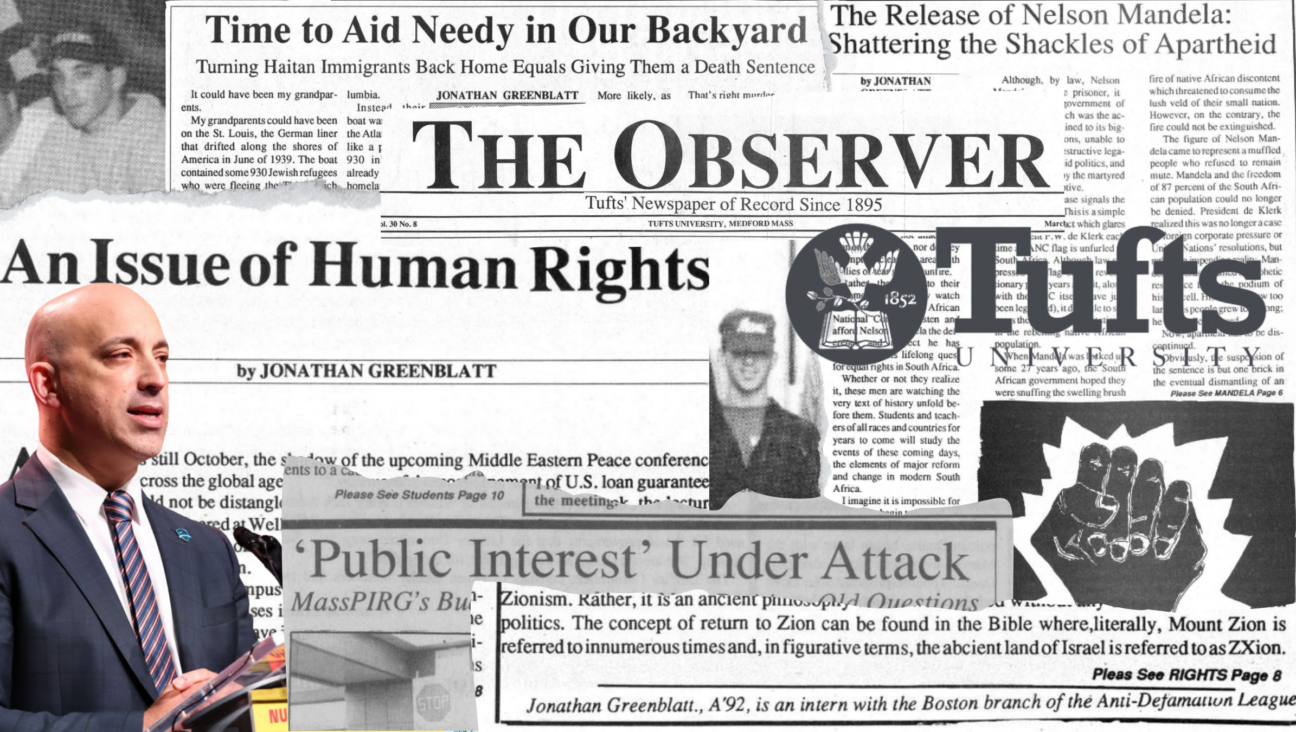Religious Right Gears Up To Push Political Choices From the Pulpit
As the presidential candidates prepare to compete for religious voters this November, some preachers on the Christian right are vowing to test longstanding tax rules that inhibit politicking from the pulpit.
The Alliance Defense Fund — a legal outfit launched by James Dobson and other prominent conservatives in the mid-1990s — has recruited 50 pastors to deliver sermons in September that will include direct endorsements of political candidates. Although churches and other religious groups, like all not-for-profits, are required by law to eschew partisanship in exchange for their tax-exempt status, ADF’S Pulpit Initiative advances a premise yet to be fully tested in the courts: that religious leaders speaking from the pulpit should benefit from special speech protections.
“The only thing that should be dictating to pastors what they can and cannot say is the Bible, not the Internal Revenue Service,” said Gus Booth, a Minnesota pastor who has endorsed Republican Senator John McCain from his pulpit. The idea that church and politics don’t mix, he told the Forward, “hasn’t actually always been that way.”
If the relationship between religion and politics is a particularly hot-button issue in the current election campaign, it is not only because both presumptive presidential nominees, Arizona’s McCain and Democratic Senator Barack Obama of Illinois, already have distanced themselves from controversial pastors. In recent months, the IRS has investigated prominent religious leaders and groups in an effort determine whether they engaged in illegal political activities by backing either Obama or McCain. Church-state watchdogs say that both parties are aggressively reaching out to religious voters and that many not-for-profit groups across the political spectrum continue to engage in questionably partisan practices.
“There are violations all over the place, and I don’t think any side has a monopoly on virtue here,” said Marc Stern, general counsel of the American Jewish Congress.
The new ADF initiative comes in response to the IRS’s increased focus on ferreting out not-for-profit violators. It is an attempt, both backers and opponents say, of using the courts to make a game-changing end-run around the agency, which issued a set of detailed guidelines in 2004, including one that precludes all clergy from endorsing from the pulpit.
ADF is “trying to push the envelope,” said Rob Boston, a spokesman for the First Amendment watchdog group Americans United for Separation of Church and State. In the past, many conservative preachers would “plead ignorance of the law, or state that they didn’t intend to give an endorsement, so this is a little more aggressive.”
In the nation’s early years, it was not unusual — or illegal — for spiritual leaders to back political candidates from the pulpit. That changed as a result of federal legislation — addressed to all not-for-profits — passed in 1954, as well as a much-publicized case in the 1980s between the agency and Reverend Jerry Falwell, who endorsed Republican Pat Robertson from the pulpit during the 1988 presidential campaign.
Now, some pastors are openly chafing against the IRS guidelines banning such endorsements. Last January, the conservative group The Becket Fund for Religious Liberty took out a full-page advertisement in The Wall Street Journal on behalf of Kenneth Taylor, an Algoma, Wis., pastor. The ad argued that a political sermon Taylor delivered from the pulpit in 2006 should be permissible. After delivering his sermon in support of McCain last month, Booth, of the Warroad Community Church in Warroad, Minn., sent a letter to Americans United publicizing his defiance of the IRS.
If a case involving an intransigent pastor does find its way to federal court, ADF will likely pursue a number of legal arguments. Erik Stanley, ADF’s senior legal counsel, said it would argue that the tax-exempt status of religious groups “is a right, not just a privilege” and that religious leaders enjoy a number of special protections under the First Amendment.
Legal experts contacted by the Forward disagreed sharply on whether the pastors’ initiative could be successful in court.
Lloyd Hitoshi Mayer, an associate professor at the University of Notre Dame Law School, said he believes that restrictions on speech from the pulpit could turn out to be vulnerable because of the 1993 Religious Freedom Restoration Act. The law stipulates that the federal government must prove that burdens on religious practice serve a compelling governmental interest and are narrowly tailored to serve that interest.
But Stern said that any legal arguments offered up by ADF are “beyond weak.”
“A Jewish bureaucrat is more likely to get rich on his salary than this case is to succeed in court,” Stern told the Forward. The courts, Stern said, have ruled in multiple cases that the loss of tax-exempt status does not qualify as a “burden” imposed on groups.
Beyond the legal issues, Stern questioned the wisdom of the campaign, a viewpoint echoed by Rabbi David Saperstein of the Reform movement. Saperstein said that although he strongly supports the right of religious leaders to make unofficial endorsements as individuals acting outside their official religious duties, partisanship from the pulpit could easily veer into dangerous territory.
“They’re asking their ministers as the pastors of those churches to feel free to endorse people, and that raises all the problems of the intervention of the government,” Saperstein told the Forward. “If we’re going to engage in this, we’re inviting the government to come in and regulate us, and the notion that that’s good for religion and the autonomy and freedom of religious institutions is a deeply troubling, problematic and counterproductive view.”

I hope you appreciated this article. Before you go, I’d like to ask you to please support the Forward’s award-winning journalism this Passover.
In this age of misinformation, our work is needed like never before. We report on the news that matters most to American Jews, driven by truth, not ideology.
At a time when newsrooms are closing or cutting back, the Forward has removed its paywall. That means for the first time in our 126-year history, Forward journalism is free to everyone, everywhere. With an ongoing war, rising antisemitism, and a flood of disinformation that may affect the upcoming election, we believe that free and open access to Jewish journalism is imperative.
Readers like you make it all possible. Right now, we’re in the middle of our Passover Pledge Drive and we still need 300 people to step up and make a gift to sustain our trustworthy, independent journalism.
Make a gift of any size and become a Forward member today. You’ll support our mission to tell the American Jewish story fully and fairly.
— Rachel Fishman Feddersen, Publisher and CEO
Join our mission to tell the Jewish story fully and fairly.
Only 300 more gifts needed by April 30





















